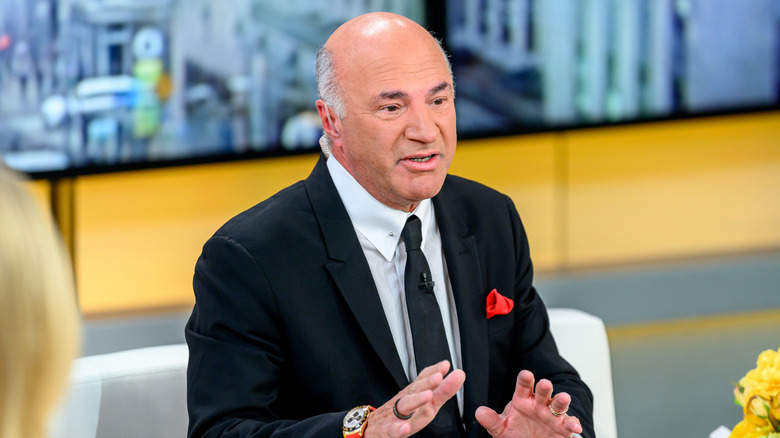Kevin O'Leary's Spending Complaint Could Be A Grim Prediction For The Future Of Hollywood Movies
Timothee Chalamet's upcoming movie "Marty Supreme" is one of the actor's most anticipated films to date. Though the drop in box office profits during the COVID-19 pandemic continues to be felt in theaters, Chalamet's performance as a plucky ping pong star has production company A24 optimistic. Even with this being said, one cast member had some harsh things to say about the movie's production: Shark Tank star Kevin O'Leary also appears in the film, and he's made headlines with statements lobbying for the use of artificial intelligence in movie production.
In an interview with The Hill, the tech entrepreneur said, "Almost every scene had as many as 150 extras," and posed questions for the studio, commenting, "Why couldn't you simply just put AI agents in their place?" Cost focus and persistence have been a major driving force behind O'Leary's success in taking a small software company to an astronomical net worth. It has also been what garnered him the ironic nickname Mr. Wonderful for his dry and analytical demeanor on "Shark Tank." But even with his experience in the tech industry, Mr. Wonderful's comments on AI have been met with pushback from the film community, showing a split in opinion regarding the future of the industry.
Like it or not, O'Leary's vision for AI could become reality
Movies are becoming increasingly expensive, with studios paying some leading actors well over $10 million. This is particularly true for A24, which cut its teeth on a low-budget approach to film production. This new film is a departure from these roots, with Chalamet as an established leading man, and NJ.com reporting that the company spent $12 million just filming the portions of the movie it shot in New Jersey.
These high production costs are the driving force behind O'Leary's opinions on how AI may strengthen profitability. He made this clear, saying, "That same director, instead of spending $90 million or whatever he spent, could've spent $35 million and made two movies." Though, from a financial perspective, an AI future in film could be lucrative, it raises alarm at the individual level. AI was a major driving force in the recent Screen Actors Guild and American Federation of Television and Radio Artists (SAG-AFTRA) strike, which greatly affected film production in 2023. The guild made this clear in a recent statement, writing, "SAG-AFTRA believes creativity is, and should remain, human-centered. The union is opposed to the replacement of human performers by synthetics."
Even with this precedent, AI is becoming increasingly more prevalent, with companies like IBM replacing many jobs with AI. Even with pushback from the industry, O'Leary made it clear he is betting on the future of big tech, doubling down on his investment in AI.

